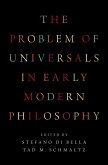Eric Schliesser's
Adam Smith is the product of two decades' reflection by the author on the great Scottish Enlightenment. Unique among treatments of Adam Smith, Schliesser's book treats him as a systematic philosopher. Smith was a giant of the Scottish Enlightenment with polymath interests; Schliesser thus explores Smith's economics and ethics in light of his other commitments on the nature of knowledge, the theory of emotions, the theory of mind, his account of language, the nature of causation, and his views on methodology. He places Smith's ideas in the context of a host of other philosophers, especially Hume, Rousseau, and Newton; and he draws on the reception of Smith's ideas by Sophie de Grouchy, Mary Wollstonecraft, and other philosophers and economists to sketch the elements of, and the detailed connections within, Smith's system.
Adam Smith traces the outlines of Smith's intellectual system and situates it in the context of his highly developed views on the norms that govern responsible speech. In particular, the book articulates Smith's concerns about the impact of his public policy recommendations, especially on the least powerful in society. In so doing, Schliesser offers new interpretations of Smith's views on the invisible hand, the
Wealth of Nations, his treatment of virtue, the nature of freedom, the individual's relationship to society, his account of the passions, the moral roles of religion, and his treatment of the role of mathematics in economics. While the book does offer a single argument, it is organized in a modular fashion and includes a helpful index; readers with a more focused interest in Smith's achievements can skip to their section of interest.
Dieser Download kann aus rechtlichen Gründen nur mit Rechnungsadresse in A, B, BG, CY, CZ, D, DK, EW, E, FIN, F, GR, HR, H, IRL, I, LT, L, LR, M, NL, PL, P, R, S, SLO, SK ausgeliefert werden.









